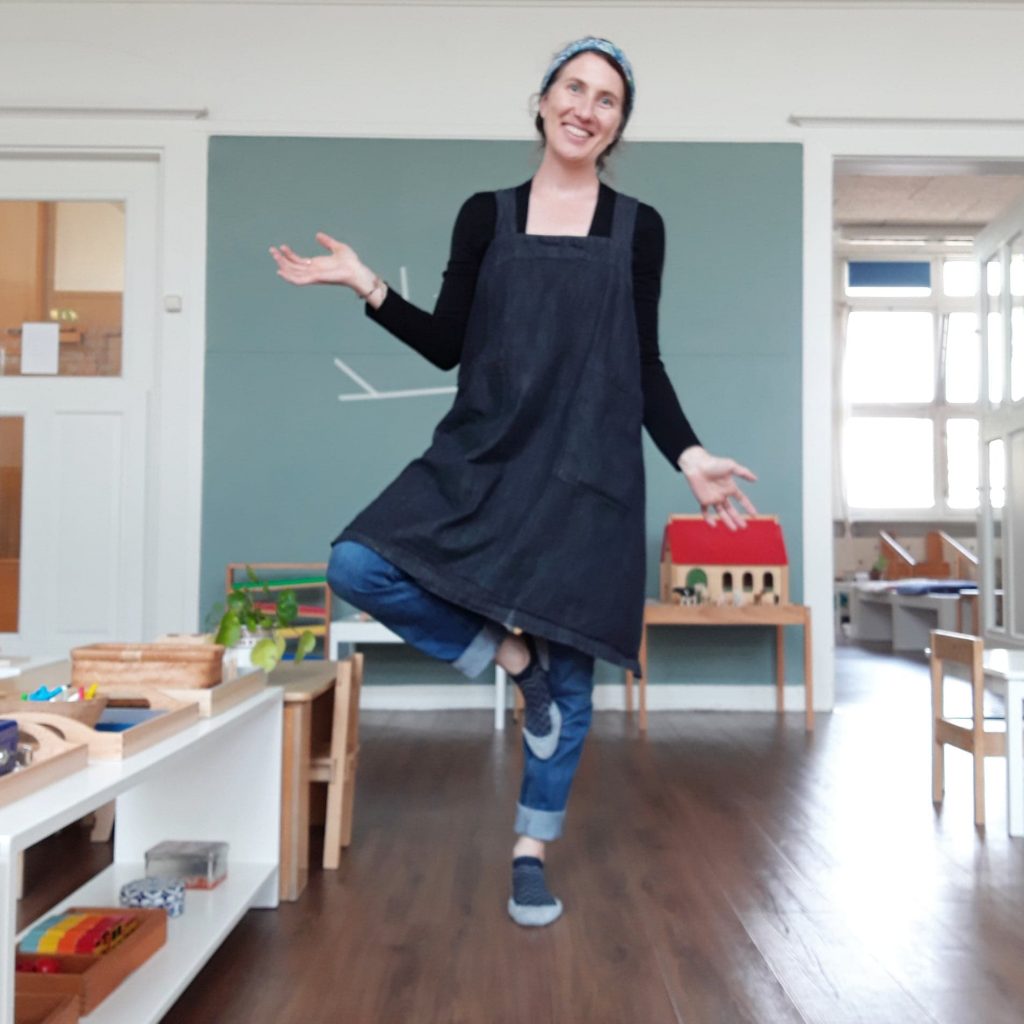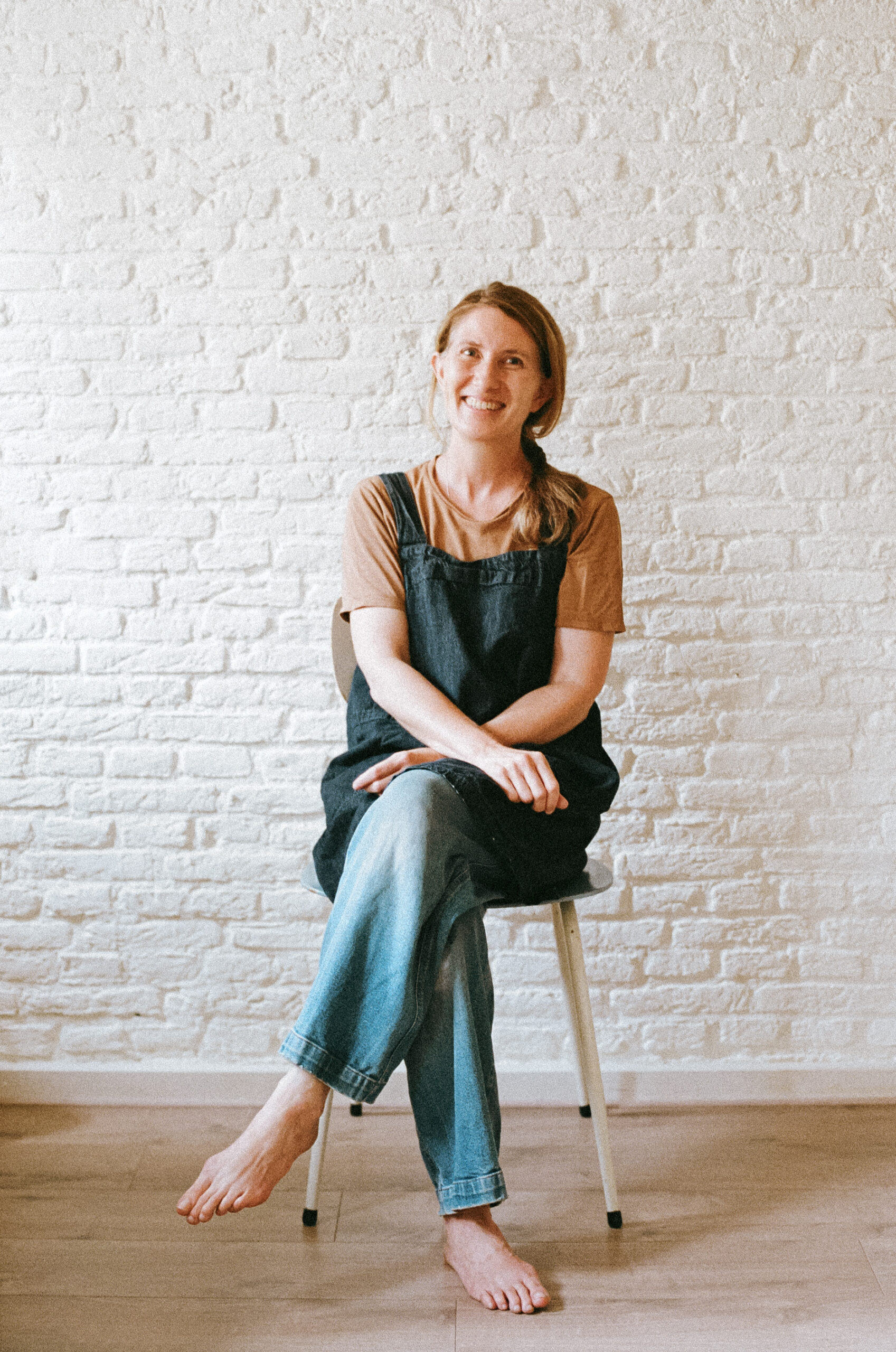8 ways you can use Montessori not just with your children …. and change the world

Are you done with feeling like there is nothing you can do when all we hear are negative stories in the news, politics and media? Here are 8 ways you can use Montessori not just with your children …. and change the world.
As you maybe already know, I’m a self-confessed idealist. And I believe that we can spread more peace and positivity one family at a time. (A photo of me above where I run my Montessori playgroup and help families bring these principles into their homes.)
So will you step up?
Last time I wrote, I gave some ideas about how you can include Montessori at home, even if your child doesn’t go to Montessori school.
A reminder:
- respect for the child – speak and listen as you would to an adult
- follow the child – trust your child will develop at their own pace
- allow time – when we slow down, there is more time for exploration, curiosity, conversation and connection
- set kind and clear limits – Montessori is also about respect to others, the environment and oneself and taking responsibility when needed
- create rich experiences – experiences don’t need to cost a lot of money. Head outdoors, walk to the end of your street at the child’s pace, go to a pond to observe, visit a fire station or (our family’s favourite) watching the trains, trips to the library to borrow books etc.
- involve your child in daily life – prepare food together, involve them as you do washing and cleaning, create gardening projects together, prepare for visitors, etc
- help me to help myself – our children are so capable so we help as little as possible and as much as is necessary
- observation – be a scientist and look at your child as if you have never met them before
- hands on concrete learning – rather than simply telling your child things or showing them how things work, let your child make discoveries for themselves
- set up your home for your child to have success – a place for everything and everything in its place where less is definitely more
If you’ve been putting these ideas into practice, then hats off.
But we are not done there. Can we apply these principles with others in our lives? Can we be an example to others and show what is possible?
It’s not hard. Most likely you are already doing most of this. Then keep spreading it far, wide, deep and many.
This is the way we can heal the world from the ground up, rather than waiting for politicians or corporations to fix things.
Here’s my challenge to you and your family to make a difference starting from your home…
1. Be an example to your child
I often say that a young child having an absorbent mind is both an enormous opportunity and responsibility. Because our children take in how we act more than what we simply say.
Sometimes we are so busy “being Montessori” with our children, we forget to apply the same principles to others in our life.
We judge them for not having similar values. For giving iPads to their kids. For eating sugar or meat. For their religion, political views or sexuality. Or for how the grandparents interfere with our kids.
Montessori is about accepting everyone for who they are. And for every person on the planet to feel such respect.
I once wrote about how we are more alike than we are different.
It takes practice to take the perspective of others. To see that from their view, they are right. And how can we find the common ground. How can we listen to each other to see what the other fears, and how we can help them in a way that works for everyone.
It means that we notice when we are judging and we stop to reflect why.
Let’s build bridges, not walls.
2. Be an example to others
Sometimes it is hard to parent in a way that feels so different to the mainstream. I think the ideas are definitely spreading with the likes of Montessori, the RIE approach, gentle parenting, simplicity parenting, positive discipline and the like.
Yet it is still hard to change our ways when there are not that many examples around us of people raising their children in a respectful way.
So I’m asking you to be that example. To show others what is possible.
That you don’t need to threaten or bribe your children to get their cooperation. That it doesn’t have to be all about the kids, that you are a person too. That you can set kind and clear limits.
And slowly people will start to notice. There is a different way to be with our children. Respectful, kind, caring, and yet where the child takes responsibility when needed.
I still remember my cousin coming to visit when Emma was a baby and Oliver a young toddler. I admit I don’t exactly remember what the dispute was over, yet I must have responded with some understanding and guidance and walked off to the kitchen. When I came back, my cousin said something like, “What did you just do? That’s different to how I would have expected you to react?”
And I told her all about Montessori…
3. Handle/speak to a child with respect
The one thing that I hope parents who come to my classes take away is the way that I speak to and handle their child with respect.
Taking off a baby’s jacket, first telling them what I am going to do (“I’m going to take off your jacket”), wait a little for them to respond, then slowly and gently take off their jacket describing what I am doing (“First I’m taking your left hand out…”).
I love the idea of “using soft hands” if we ever need to handle a child.
And talking to the child in the same way we would want to be spoken to. With kindness and grace. And accepting our humanness.
4. Take care of the environment, others, ourselves
I love in a Montessori home our children learn to look after the environment (water the plants, wipe up a spill, take their dirty plates to the kitchen etc), others (helping a friend pick up pieces, offer a tissue to a child who is crying, take care of a pet, serve a grandparent a glass of water etc), and themselves (learning to dress themselves, blow their nose, brush their hair, wash their hands etc).
And we can take this even further by volunteering with our family – for example, we used to visit a nursing home once a week and the residents loved seeing Oliver and Emma (a tiny toddler and baby) each week.
Or we could plant a garden. If we don’t have access to an outside space ourselves, we could look for a community garden, allotment, or do some gardening in window boxes inside.
We can model collecting waste, composting, taking re-usable bags, and buying less.
Showing care to our environment, others and ourselves.
5. Build a village
When my children were small, I confess that I thought that their dad and I were the only ones “good enough” to look after them. It took some time before I realised that they need a village.
They learn so much from other people’s experiences. Their grandparents. Their aunts and uncles. Our friends. Car-pooling or going in a neighbour’s bakfiets (box bike) to school. Caring adults who can babysit, read with them, and share their hobbies.
And that as much as online connections are lovely, real in-person connections are the best.
It takes a village…
6. Take time
I often hear that doing Montessori takes more time. In some ways it does – being mindful about creating our spaces for the child to have success, rotating activities that are engaging for them, taking the time to observe our children so we can see what their interests are and to help them navigate the world.
And yet this time can save us time in the long term.
By slowing down while our child learns to dress, saves us time as they dress themselves for so many years to come.
By allowing time for our child to process their emotions, saves time instead of it popping back up 5 minutes after the last outburst.
By going slow, our child feels safe, curious, with time to explore the world around them. Cultivating a love of learning that cannot be rushed.
By having young children help in the kitchen, our meals will take longer to prepare (and likely be a little more mashed). Yet we are raising children who feel part of the family who make a contribution (rather than seeing these things as chores).
So as much as possible, make time now. And save time later. (Not to mention less battles with our children and more peace and calm in our parenting.)
7. Stay calm
A father in my class told me that this Montessori way of parenting the child works really well when he is not tired. But very difficult when he is stressed, distracted or exhausted.
It’s so true. It’s so important as parents and carers to look after ourselves so we can look after others.
If you are looking for ways to stay calm, I wrote a bumper post here.
8. Learn from our triggers
Lastly, I love the expression that there are no enemies, only teachers. If you’ve ever felt triggered by your child or someone else, it is often because this is an area we still need to work on.
If we are frustrated our child won’t listen to us, it can often be us wanting to control things or that we in fact are not listening to the child.
If we are angry at someone for letting us down, it may be that we let ourselves down.
If we are jealous of someone or something, it may be that it’s something we really want for ourselves. And something we could work towards.
So let’s say thank you for being triggered, shining a light on areas we can still grow.
—
To me this is the true power of Montessori. Not simply beautiful activities and calm spaces.
But living by example and spreading peace and positivity.
One family at a time.

Simone Davies has more than 20 years’ experience as an AMI Montessori educator. Simone is the author of “The Montessori Toddler” and co-author of “The Montessori Baby” and “The Montessori Child” books, comprehensive guides to raising children in a Montessori way. She currently runs parent-child Montessori classes in Amsterdam at her school Jacaranda Tree Montessori. She also has a popular blog, instagram and podcast “The Montessori Notebook” and is mother to two young adults.